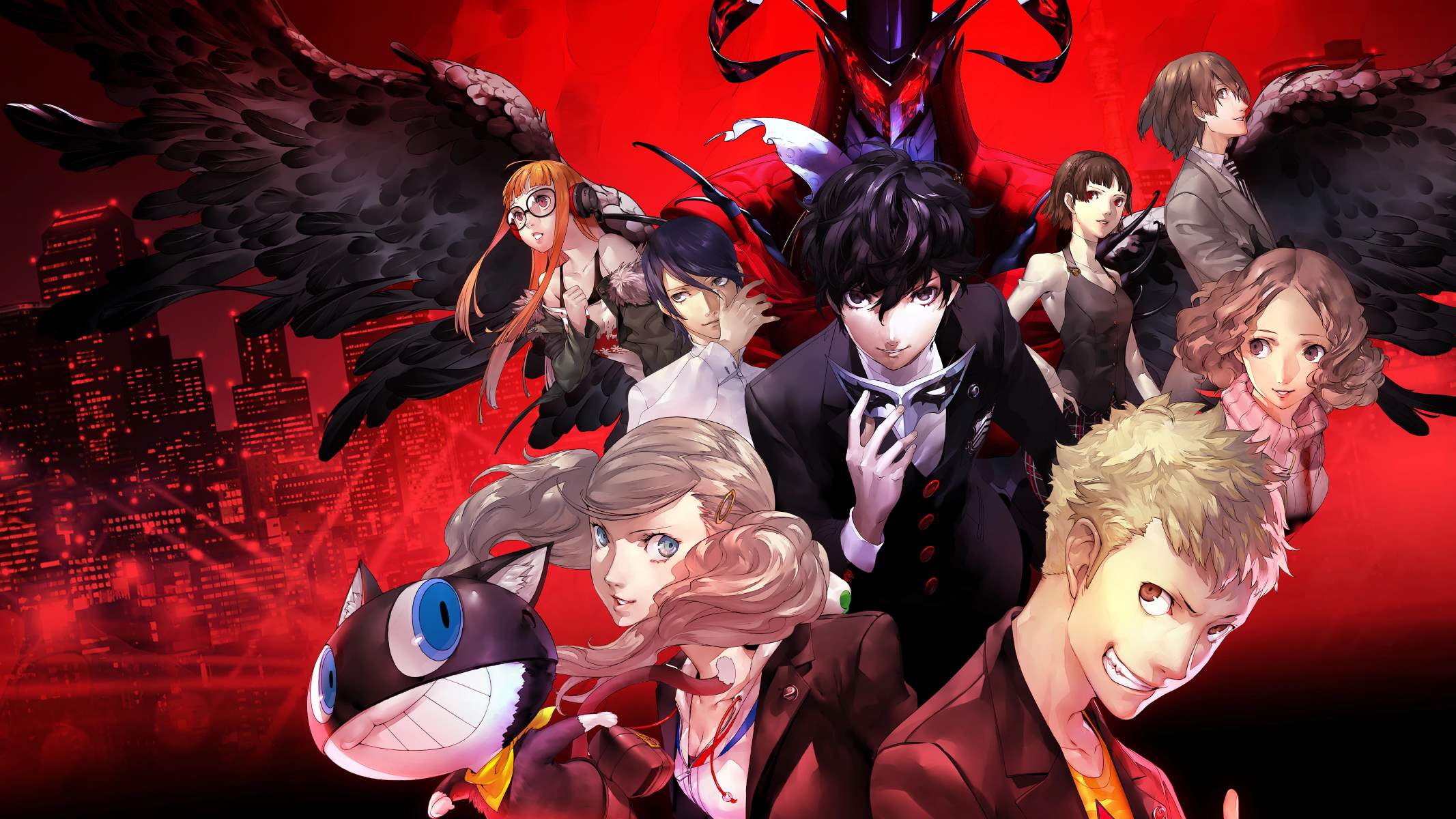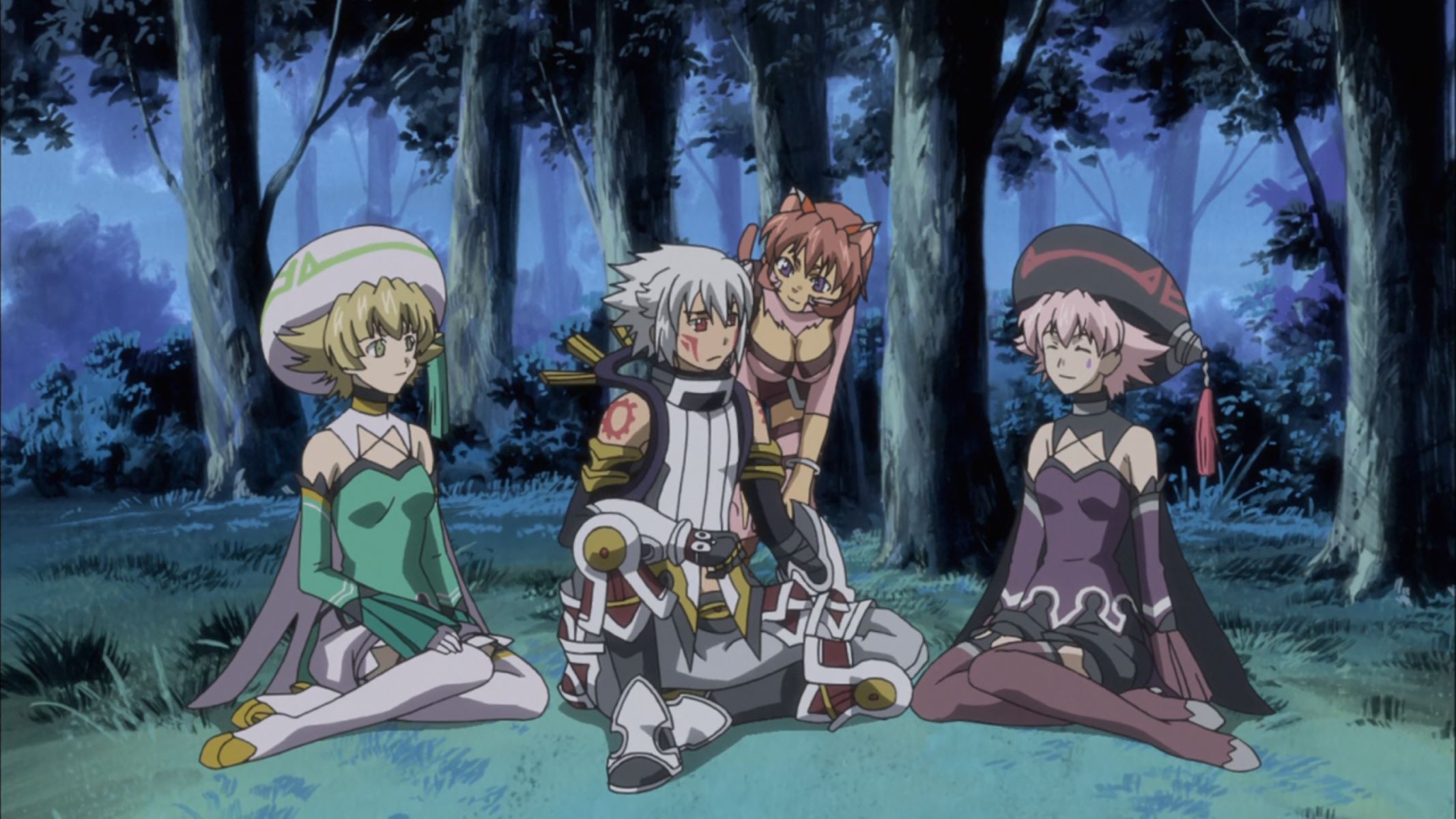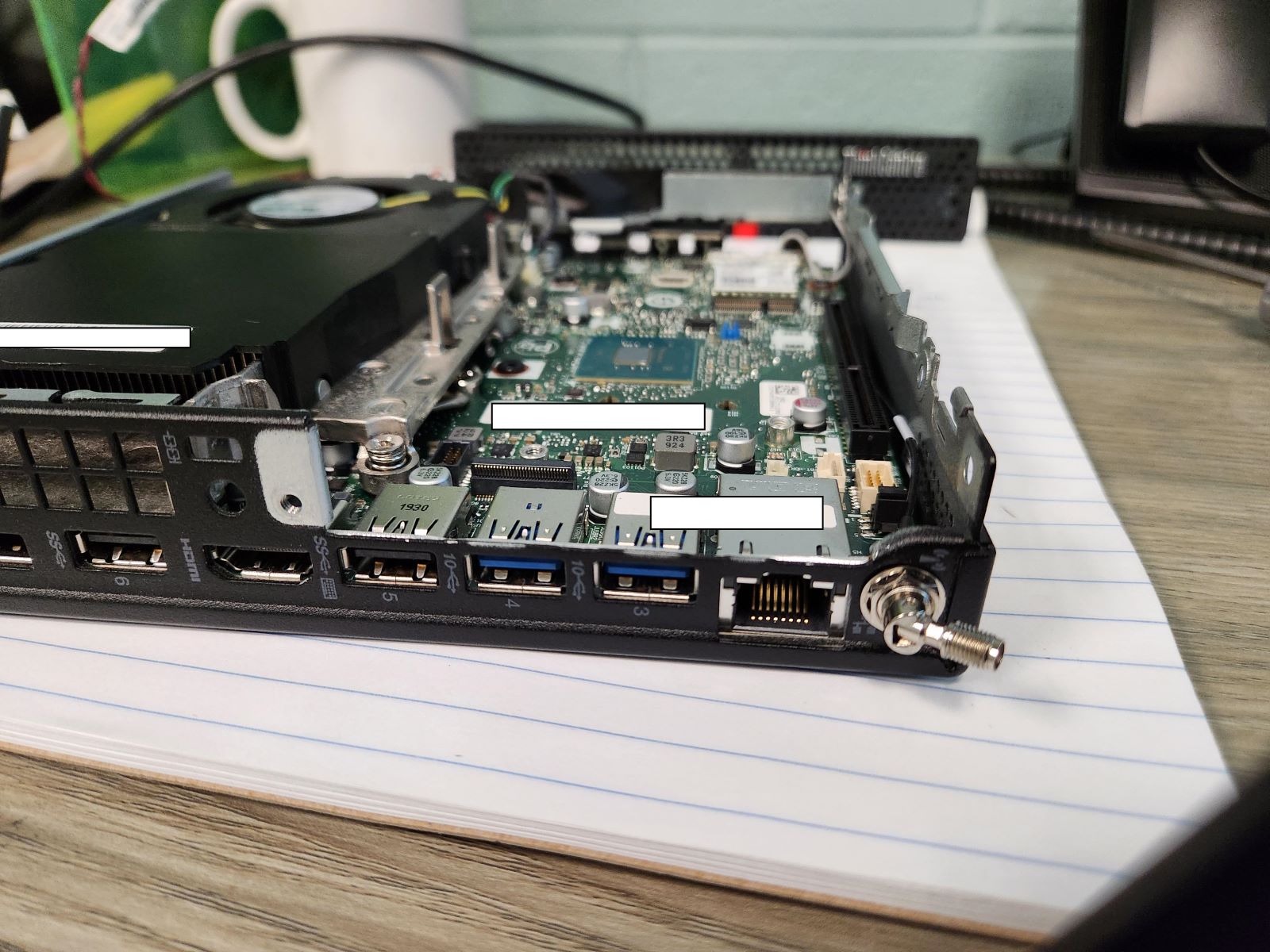Home>Entertainment>The Surprising Truth: Unveiling The Hidden Secrets Of Shin Megami Tensei And Persona Series


Entertainment
The Surprising Truth: Unveiling The Hidden Secrets Of Shin Megami Tensei And Persona Series
Published: February 4, 2024
Discover the hidden secrets and surprising truths behind the Shin Megami Tensei and Persona series. Unveil the mysteries and dive into the captivating world of entertainment.
(Many of the links in this article redirect to a specific reviewed product. Your purchase of these products through affiliate links helps to generate commission for Regretless.com, at no extra cost. Learn more)
Table of Contents
Introduction
Welcome to the fascinating world of Shin Megami Tensei and Persona, where captivating storytelling, intricate gameplay, and thought-provoking themes converge to create an unparalleled gaming experience. As we embark on this journey, we will delve into the origins, themes, gameplay mechanics, cultural impact, and the future of these beloved series.
Shin Megami Tensei, a renowned role-playing video game franchise developed by Atlus, has garnered a dedicated global fan base since its inception in 1987. The series is celebrated for its mature and complex narratives, which often explore philosophical, psychological, and moral dilemmas within a post-apocalyptic or supernatural setting. On the other hand, the Persona series, a subseries of Shin Megami Tensei, offers a unique blend of social simulation and dungeon-crawling gameplay, set against the backdrop of high school life and the exploration of Jungian psychology.
Join us as we unravel the hidden secrets and delve into the captivating world of Shin Megami Tensei and Persona, where the boundaries between reality and the supernatural blur, and every decision carries weighty consequences.
The Origins of the Shin Megami Tensei and Persona Series
The origins of the Shin Megami Tensei and Persona series can be traced back to the visionary minds at Atlus, a Japanese video game developer known for pushing the boundaries of storytelling and gameplay. The inception of the Shin Megami Tensei series in 1987 marked a significant milestone in the role-playing game genre. The name "Shin Megami Tensei" translates to "True Goddess Reincarnation," reflecting the series' exploration of mythological, religious, and occult themes.
The foundation of the Shin Megami Tensei series lies in the novel "Digital Devil Story: Megami Tensei," penned by Aya Nishitani. This novel served as the source material for the first game, which introduced players to a post-apocalyptic Tokyo overrun by demons and fused cybernetic elements with supernatural themes. The game's mature and thought-provoking narrative, coupled with its innovative demon negotiation system, captivated players and set the stage for a groundbreaking franchise.
Building upon the success of Shin Megami Tensei, Atlus ventured into uncharted territory with the Persona series. The inaugural title, "Revelations: Persona," emerged in 1996, presenting a departure from the series' darker themes by intertwining the supernatural with the everyday lives of high school students. This shift in focus laid the groundwork for a unique blend of social simulation, dungeon exploration, and turn-based combat, setting Persona apart as a distinct subseries within the Shin Megami Tensei universe.
As the Persona series evolved, subsequent installments delved deeper into Jungian psychology, exploring the concept of personas as manifestations of one's inner self. This psychological framework, coupled with the series' signature mix of social interactions and supernatural battles, resonated with players worldwide, cementing Persona's status as a revered and influential franchise.
The origins of the Shin Megami Tensei and Persona series reflect a commitment to pushing the boundaries of storytelling and gameplay, captivating players with thought-provoking narratives, innovative mechanics, and a seamless fusion of the supernatural with everyday life. These origins laid the groundwork for the series' enduring legacy and continued evolution, captivating a global audience and shaping the landscape of role-playing games for years to come.
The Themes and Symbolism in the Games
The Shin Megami Tensei and Persona series are renowned for their rich tapestry of themes and symbolism, delving into profound and thought-provoking concepts that resonate with players on a deep level. These games artfully explore existentialism, morality, identity, and the human psyche, inviting players to contemplate the complexities of the human experience within the context of supernatural and apocalyptic settings.
One recurring theme across both series is the exploration of moral ambiguity and the consequences of one's actions. Players are often confronted with morally gray choices that have far-reaching implications, challenging them to navigate intricate moral dilemmas and grapple with the repercussions of their decisions. This thematic exploration adds layers of depth and emotional resonance to the storytelling, compelling players to consider the ethical implications of their in-game choices.
Furthermore, the concept of identity and the duality of human nature are prevalent themes in these games. The notion of personas, as depicted in the Persona series, serves as a metaphor for the masks individuals wear in different social contexts and the internal struggle to reconcile conflicting aspects of one's personality. This exploration of identity and self-discovery resonates with players as they accompany the protagonists on their journeys of introspection and growth.
The games also delve into the existential angst and the search for meaning in a world fraught with chaos and uncertainty. The post-apocalyptic landscapes in the Shin Megami Tensei series and the juxtaposition of the supernatural with everyday life in the Persona series serve as potent backdrops for contemplating the human condition and the pursuit of purpose amidst adversity.
Moreover, the symbolism of mythological and religious motifs permeates the narratives, adding layers of depth and allegorical significance to the storytelling. The presence of demons, gods, and supernatural entities intertwines with philosophical and psychological themes, inviting players to ponder the intersection of myth, belief systems, and the human experience.
In essence, the themes and symbolism in the Shin Megami Tensei and Persona series transcend traditional gaming narratives, offering a profound and introspective exploration of the human experience. Through their thought-provoking themes and allegorical storytelling, these games invite players to embark on transformative journeys of self-discovery, moral introspection, and existential contemplation, leaving a lasting impact on their hearts and minds.
The Gameplay Mechanics and Innovations
The Shin Megami Tensei and Persona series have continually pushed the boundaries of gameplay mechanics, introducing innovative features that have redefined the role-playing game genre. One of the hallmark mechanics across both series is the demon negotiation system, which allows players to engage in conversations with demons, offering items, money, or even convincing them to join the party. This mechanic adds a layer of unpredictability and strategic depth to encounters, as players must carefully navigate dialogue options to sway demons to their cause.
In addition to demon negotiation, the series is renowned for its turn-based combat system, which emphasizes exploiting enemy weaknesses to gain strategic advantages. This approach requires players to carefully analyze enemy patterns and elemental affinities, adding a tactical dimension to battles. Furthermore, the inclusion of the "Press Turn" system in the Shin Megami Tensei series and the "One More" system in the Persona series rewards players for exploiting weaknesses, encouraging dynamic and engaging combat encounters.
The Persona series introduced a unique blend of social simulation and dungeon-crawling gameplay, where players must balance their daily lives as high school students with delving into supernatural dungeons. This innovative fusion of gameplay elements allows players to form meaningful social bonds with various characters, known as Social Links, which directly impact the strength of their personas in battle. By intertwining social interactions with combat mechanics, the Persona series offers a holistic and immersive gameplay experience unlike any other.
Moreover, the series has consistently incorporated a robust fusion system, enabling players to combine and create new demons or personas by merging existing ones. This mechanic not only adds a layer of customization and strategic depth but also encourages experimentation and creativity, empowering players to tailor their party to suit their playstyle and tactical preferences.
Furthermore, the series has continually evolved with each installment, introducing new features such as the "Confidant" system in Persona 5, which expands upon the Social Link mechanic by offering unique abilities and benefits tied to each character. Additionally, the negotiation mechanics have been refined and expanded, offering a more nuanced and immersive experience in recent titles.
In essence, the gameplay mechanics and innovations in the Shin Megami Tensei and Persona series have redefined the role-playing game experience, offering a harmonious blend of strategic combat, social simulation, and demon/persona management. These innovative mechanics have set a new standard for the genre, captivating players with their depth, complexity, and the seamless integration of gameplay and narrative elements. As the series continues to evolve, it remains at the forefront of gaming innovation, continually challenging and inspiring the industry as a whole.
The Cultural Impact and Global Reception
The Shin Megami Tensei and Persona series have left an indelible mark on gaming culture and have garnered widespread acclaim and recognition on a global scale. These games have transcended traditional gaming conventions, resonating with players across diverse cultural and geographical landscapes. The cultural impact and global reception of these series can be attributed to their compelling narratives, innovative gameplay mechanics, and the profound themes they explore.
In Japan, the birthplace of the series, Shin Megami Tensei and Persona have attained iconic status, influencing not only the gaming industry but also popular culture as a whole. The deep-rooted fascination with mythology, folklore, and existential themes within Japanese society has contributed to the series' resonance with local audiences. Moreover, the nuanced portrayal of societal and psychological struggles has struck a chord with Japanese players, fostering a devoted fan base that continues to celebrate and engage with the series.
Beyond Japan, the cultural impact of Shin Megami Tensei and Persona has reverberated throughout the global gaming community. These series have garnered a dedicated international following, captivating players with their immersive storytelling, complex characters, and innovative gameplay. The themes explored in the games, ranging from morality and identity to existentialism and mythological symbolism, have transcended cultural barriers, resonating with players from diverse backgrounds and belief systems.
The global reception of the series has been overwhelmingly positive, with each new installment garnering critical acclaim and commercial success. The games' ability to seamlessly blend mature storytelling with innovative gameplay mechanics has earned them a reputation for pushing the boundaries of the role-playing game genre. Furthermore, the series' distinctive art style, evocative soundtracks, and meticulous attention to detail have contributed to their appeal and recognition on a global scale.
The impact of the Shin Megami Tensei and Persona series extends beyond the realm of gaming, influencing various forms of media, including anime adaptations, manga, and spin-off titles. The cultural resonance of these games has inspired a diverse array of merchandise, fan art, and community events, fostering a vibrant and enduring subculture surrounding the series.
In summary, the cultural impact and global reception of the Shin Megami Tensei and Persona series underscore their profound influence on gaming culture and their ability to transcend geographical and cultural boundaries. These games have not only captivated players with their immersive narratives and innovative gameplay but have also left an indelible mark on popular culture, solidifying their status as iconic and influential pillars of the gaming industry.
The Future of the Series: What Lies Ahead?
As the Shin Megami Tensei and Persona series continue to captivate players worldwide, the future holds boundless potential for further innovation and evolution. With each new installment, these beloved franchises have pushed the boundaries of storytelling, gameplay, and thematic exploration, leaving a lasting impact on the gaming industry. Looking ahead, several key elements and possibilities shape the trajectory of the series, offering a glimpse into what the future may hold.
One of the most anticipated aspects of the series' future is the continued exploration of complex and thought-provoking narratives. The Shin Megami Tensei and Persona series have become synonymous with mature storytelling, delving into existential, psychological, and moral themes with a level of depth and nuance rarely seen in gaming. As the series progresses, the potential for even more intricate and emotionally resonant narratives looms on the horizon, promising to challenge players with profound philosophical dilemmas and morally ambiguous choices.
Furthermore, the evolution of gameplay mechanics stands as a pivotal aspect of the series' future. With each new entry, the games have introduced innovative features that redefine the role-playing game experience, from demon negotiation and turn-based combat to social simulation and persona management. The future of the series holds the promise of further refinement and expansion of these mechanics, offering new layers of strategic depth, customization, and immersion. Additionally, the integration of new technologies and gaming platforms may open doors to unprecedented gameplay experiences, leveraging the full potential of modern hardware to deliver captivating and innovative gameplay mechanics.
The global expansion of the series also stands as a compelling prospect for the future. While the Shin Megami Tensei and Persona series have garnered a dedicated international fan base, the potential for broader accessibility and outreach to new audiences remains an exciting avenue for the series' future. Expanding the series' presence across diverse regions and platforms can further enrich the global gaming community, fostering a more inclusive and diverse fan base while introducing the series to a new generation of players.
Moreover, the potential for collaborative ventures and multimedia adaptations presents an intriguing landscape for the series' future. The success of spin-off titles, anime adaptations, and collaborations with other entertainment mediums has demonstrated the series' versatility and enduring appeal. Exploring new avenues for storytelling and engagement, such as expanded universe projects, multimedia partnerships, and interactive experiences, could further elevate the series' cultural impact and reach.
In essence, the future of the Shin Megami Tensei and Persona series brims with potential, promising a continuation of captivating narratives, innovative gameplay mechanics, global expansion, and diverse multimedia ventures. As the series continues to evolve and inspire, the horizon holds the promise of new artistic horizons, immersive experiences, and enduring resonance with players across the globe.
Conclusion
In conclusion, the Shin Megami Tensei and Persona series stand as titans in the realm of role-playing games, captivating players with their profound narratives, innovative gameplay mechanics, and enduring cultural impact. From their humble origins to their global resonance, these series have continually pushed the boundaries of storytelling and gameplay, leaving an indelible mark on gaming culture.
The captivating themes and symbolism woven into the fabric of these games have transcended traditional gaming narratives, inviting players to contemplate existentialism, morality, identity, and the human psyche. The exploration of morally ambiguous choices, the duality of human nature, and the search for meaning amidst chaos has resonated with players on a deep and introspective level, fostering a profound connection with the narratives.
Furthermore, the innovative gameplay mechanics and strategic depth of the series have redefined the role-playing game experience, setting a new standard for the genre. The demon negotiation system, turn-based combat, social simulation elements, and persona/demon fusion mechanics have collectively contributed to an immersive and holistic gameplay experience, captivating players with their depth and complexity.
The global reception and cultural impact of the Shin Megami Tensei and Persona series underscore their significance in the gaming landscape. These games have transcended geographical and cultural boundaries, resonating with players worldwide and inspiring a devoted fan base that continues to celebrate and engage with the series across various forms of media.
Looking to the future, the series holds boundless potential for further innovation and evolution, promising captivating narratives, refined gameplay mechanics, global expansion, and diverse multimedia ventures. As the series continues to evolve and inspire, it remains at the forefront of gaming innovation, continually challenging and inspiring the industry as a whole.
In essence, the Shin Megami Tensei and Persona series have not only left an indelible mark on gaming culture but have also invited players to embark on transformative journeys of self-discovery, moral introspection, and existential contemplation. These series will undoubtedly continue to shape the landscape of role-playing games, captivating and inspiring players for generations to come.














